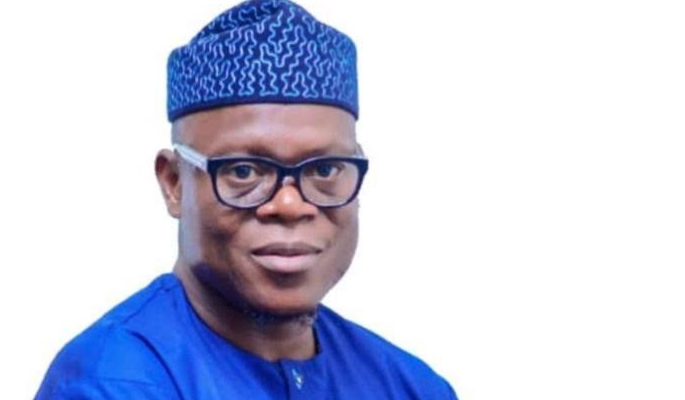The All Progressives Congress (APC) and the 2027 Elections: Combating Misinformation and Promoting Economic Progress
The All Progressives Congress (APC) has identified the critical need to address the increasing use of ethnicity, religion, and misinformation as political weapons in the lead-up to the 2027 general elections. Recognizing the potential for these divisive tactics to undermine the democratic process and harm national unity, the party has called upon its spokespersons across the country to actively counter these narratives and promote factual information. This call to action underscores the APC’s commitment to fostering a political environment where discourse is based on substance rather than manipulation.
During a capacity-building seminar for APC zonal and state publicity secretaries, key party figures, including National Secretary Ajibola Basiru and Minister of Solid Minerals Dele Alake, emphasized the positive impact of President Bola Tinubu’s economic reforms. They highlighted the removal of the fuel subsidy and the unification of exchange rates as crucial steps towards strengthening the Nigerian economy, creating opportunities for infrastructure development, attracting foreign investment, and ultimately improving the lives of citizens. These reforms, while sometimes met with initial resistance, are portrayed by the APC as necessary measures to achieve long-term economic stability and growth.
Basiru expressed concern over the escalating ethnic divisions within the country, observing that such fault lines have become significantly more pronounced in recent years, particularly during the 2023 elections. He lamented the exploitation of these divisions for political gain and stressed the importance of countering such divisive tactics. The APC’s concern reflects a broader societal anxiety about the potential for ethnic tensions to destabilize the country and undermine the progress made towards national unity.
The APC National Secretary also highlighted the growing problem of misinformation and the deliberate spread of falsehoods through manipulated images and fabricated stories. He pointed to instances where images from conflict zones in other countries were falsely attributed to Nigeria, creating an atmosphere of fear and distrust. He further criticized politicians who, despite lacking tangible achievements in their own constituencies, attempt to deflect attention by citing the successes of other nations. This, he argued, is a deceptive tactic aimed at diverting attention from their own failures and misleading the public.
Basiru further addressed the issue of religious weaponization, noting how some individuals with questionable religious credentials exploit religious sentiments for political advancement. He challenged the party’s spokespersons to actively confront the spread of religious bigotry and promote tolerance and understanding. The APC’s stance on this issue reflects a broader concern within Nigeria about the potential for religious extremism to disrupt the country’s delicate balance of faith traditions.
Alake, echoing Basiru’s sentiments, emphasized the federal government’s commitment to improving the lives of Nigerians through increased revenue allocation to sub-national entities and investment in significant infrastructure projects. He defended the removal of the fuel subsidy and the unification of the exchange rate as essential steps towards stabilizing the macroeconomy and creating a more sustainable economic future. He argued that while there may be short-term challenges associated with these reforms, the long-term benefits will far outweigh any initial difficulties.
Alake explained that these reforms have led to increased revenue for both the federal government and sub-national entities, enabling them to address pressing infrastructural needs and improve public services. He emphasized that the resulting economic stability will create a conducive environment for employment generation and increased production, ultimately leading to greater prosperity for all Nigerians. This, he argued, is the pathway to addressing the rising cost of living and improving the overall economic well-being of the population.
The APC’s focus on combating misinformation, addressing ethnic and religious divisions, and promoting the benefits of President Tinubu’s economic reforms underscores the party’s strategy for the 2027 elections. By actively engaging with these critical issues, the APC aims to build public trust and demonstrate its commitment to governing in the best interests of all Nigerians. This approach reflects the party’s understanding that a strong and unified Nigeria is essential for achieving its vision of a prosperous and equitable future. The party’s emphasis on countering divisive narratives suggests a recognition of the crucial role that public perception plays in political success.
The seminar served as a platform for the APC to equip its spokespersons with the knowledge and strategies necessary to effectively communicate the party’s message to the public. By addressing the issues of misinformation, ethnic divisions, and the perceived economic hardship head-on, the APC aims to shape the narrative leading up to the 2027 elections. This proactive approach reflects the party’s understanding of the importance of communicating its vision and achievements to the electorate.
Ultimately, the APC’s success in the 2027 elections will depend on its ability to convince the Nigerian people that its policies are delivering tangible benefits and that it is the party best equipped to lead the country forward. The party’s emphasis on robust communication and public engagement suggests an understanding of the crucial role that these factors play in shaping public opinion and ultimately determining electoral outcomes. The coming years will reveal whether this strategy will be sufficient to secure victory in the highly competitive political landscape of Nigeria.


